Politics
European Council Reaffirms Strong EU Stance on Ukraine, Middle East Stability, and International Law
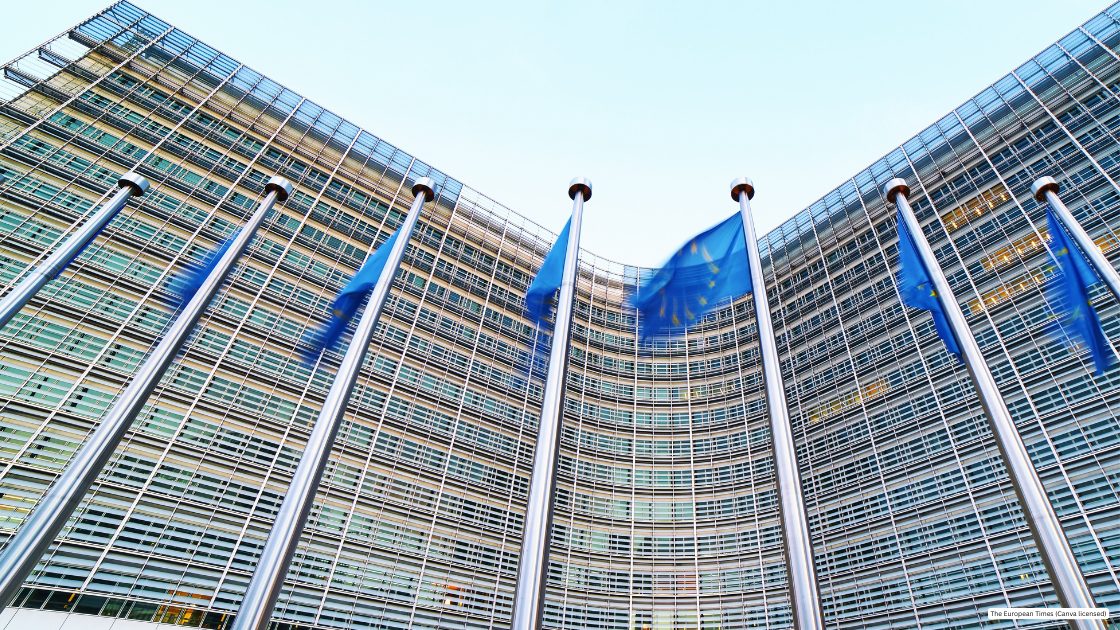
Brussels, October 17, 2024 – In a decisive meeting held today, the European Council underscored the European Union’s unwavering commitment to supporting Ukraine amidst ongoing Russian aggression, stabilizing the tumultuous Middle East region, and upholding the rules-based international order. Leaders from all member states convened to address pressing geopolitical challenges, economic resilience, and humanitarian crises, outlining comprehensive strategies to navigate the complex global landscape.
Bolstering Support for Ukraine
The Council reaffirmed the EU’s steadfast support for Ukraine, emphasizing that no initiatives concerning Ukraine will proceed without its active involvement. In a robust move, EU leaders approved a significant provision of up to €35 billion in macro-financial assistance to Ukraine, funded by Russia’s immobilized assets. This financial aid aims to support Ukraine‘s defense capabilities and rebuild critical infrastructure devastated by Russian shelling.
“Ensuring Ukraine’s energy security and integrating its energy system with the EU’s network are paramount,” stated one EU official. The Council condemned Russia’s persistent attacks on Ukraine’s critical infrastructure, including energy facilities and port infrastructure, which have far-reaching implications for global food security. In addition to financial support, the EU is facilitating the rapid delivery of air defense systems, ammunition, and missiles to bolster Ukraine’s defense and protect vital infrastructure.
Strengthening Sanctions and Accountability
EU leaders reiterated their commitment to enforcing sanctions against Russia and other aggressors. They condemned third countries that continue to support Russia’s war efforts through the provision of technological and software goods, urging these nations to cease all assistance. The Council welcomed the adoption of a new sanctions regime targeting Russian hybrid threats and indicated readiness to impose further sanctions or import tariffs on Russian and Belarusian products if necessary.
Addressing reports of executions of Ukrainian prisoners of war by Russian forces, the Council stressed the importance of adhering to international humanitarian law. “No crime should go unpunished,” a spokesperson emphasized, highlighting the EU’s dedication to ensuring accountability for violations of international law.
Addressing the Middle East Crisis
The European Council expressed deep alarm over the escalating military conflicts in the Middle East, particularly condemning the Iranian attacks on Israel and the violence in Lebanon. Leaders called for immediate ceasefires, humanitarian assistance, and strict adherence to international law. The EU committed to enhancing its humanitarian engagement and supporting mediation efforts led by Egypt, Qatar, the United States, and Jordan to de-escalate tensions and promote regional stability.
In Lebanon, the Council condemned the military escalation and emphasized the protection of civilians and infrastructure. Leaders called for an immediate ceasefire along the Lebanese-Israeli border and the full implementation of UN Security Council Resolution 1701, which mandates the cessation of hostilities between Israel and Hezbollah.
Upholding the Rules-Based International Order
Amid rising global tensions, the European Council reiterated its commitment to the rules-based international order, with the United Nations and its Charter at the core. Leaders emphasized the importance of ending impunity for violations of international law and supporting decisions of international courts. They welcomed the ‘Pact for the Future’ adopted at the 79th UN General Assembly, aimed at revitalizing the multilateral system and enhancing the UN’s effectiveness.
Enhancing EU Competitiveness and Economic Resilience
The Council underscored the EU’s dedication to strengthening its long-term competitiveness and economic resilience. Leaders called for urgent efforts to address challenges identified in recent reports by Enrico Letta and Mario Draghi, focusing on advancing work to enhance the EU’s market dynamics and competitiveness strategy. An informal European Council meeting is scheduled for November in Budapest to further discuss these initiatives.
Tackling Migration and Strengthening External Borders
Migration remained a critical topic, with EU leaders advocating for a comprehensive approach to migration management. The Council called for intensified cooperation with countries of origin and transit to address root causes, combat trafficking and smuggling, and prevent irregular departures. Leaders emphasized the importance of implementing existing EU laws and swiftly introducing new legislative proposals to streamline returns, ensuring safe and legal migration pathways.
Supporting Moldova and Georgia’s EU Aspirations
The European Council reaffirmed its support for Moldova and Georgia in their aspirations to join the EU. Leaders commended Moldova’s commitment to reforms and stability, while also urging Georgia to adopt democratic and sustainable reforms to align with EU values. The Council emphasized the EU’s readiness to support both nations on their European paths, recognizing their sovereignty and territorial integrity.
Responding to Humanitarian Crises in Sudan and Venezuela
Concerns were raised regarding the humanitarian situations in Sudan and Venezuela. The EU leaders called for an immediate cessation of hostilities in Sudan and urged the international community to uphold humanitarian pledges. In Venezuela, the Council condemned post-election human rights violations, urging the authorities to respect democratic will, end repression, and release political prisoners. The EU pledged to work with regional partners to support a peaceful and democratic transition in Venezuela.
Preparing for Upcoming UN Conferences
Looking ahead, the European Council reviewed preparations for key United Nations conferences, including the UN Biodiversity Conference (COP16) in Cali, Colombia; the UN Climate Change Conference (COP29) in Baku, Azerbaijan; and the UN Desertification Conference in Riyadh, Saudi Arabia. Leaders called for ambitious actions to combat climate change, biodiversity loss, and pollution, reaffirming the EU’s commitment to its financing goals to support these global initiatives.
Conclusion
Today’s European Council meeting highlighted the EU’s proactive stance in addressing some of the most pressing global challenges. From supporting Ukraine and enforcing sanctions against aggressors to stabilizing the Middle East and enhancing economic resilience, the Council’s comprehensive strategies reflect the EU’s dedication to peace, security, and prosperity both within and beyond its borders. As the EU navigates these complex issues, its commitment to international law and multilateral cooperation remains steadfast, positioning it as a pivotal actor in shaping the future of global politics.
Source link
Politics
Historic Referendum in Moldova: EU Membership on the Ballot
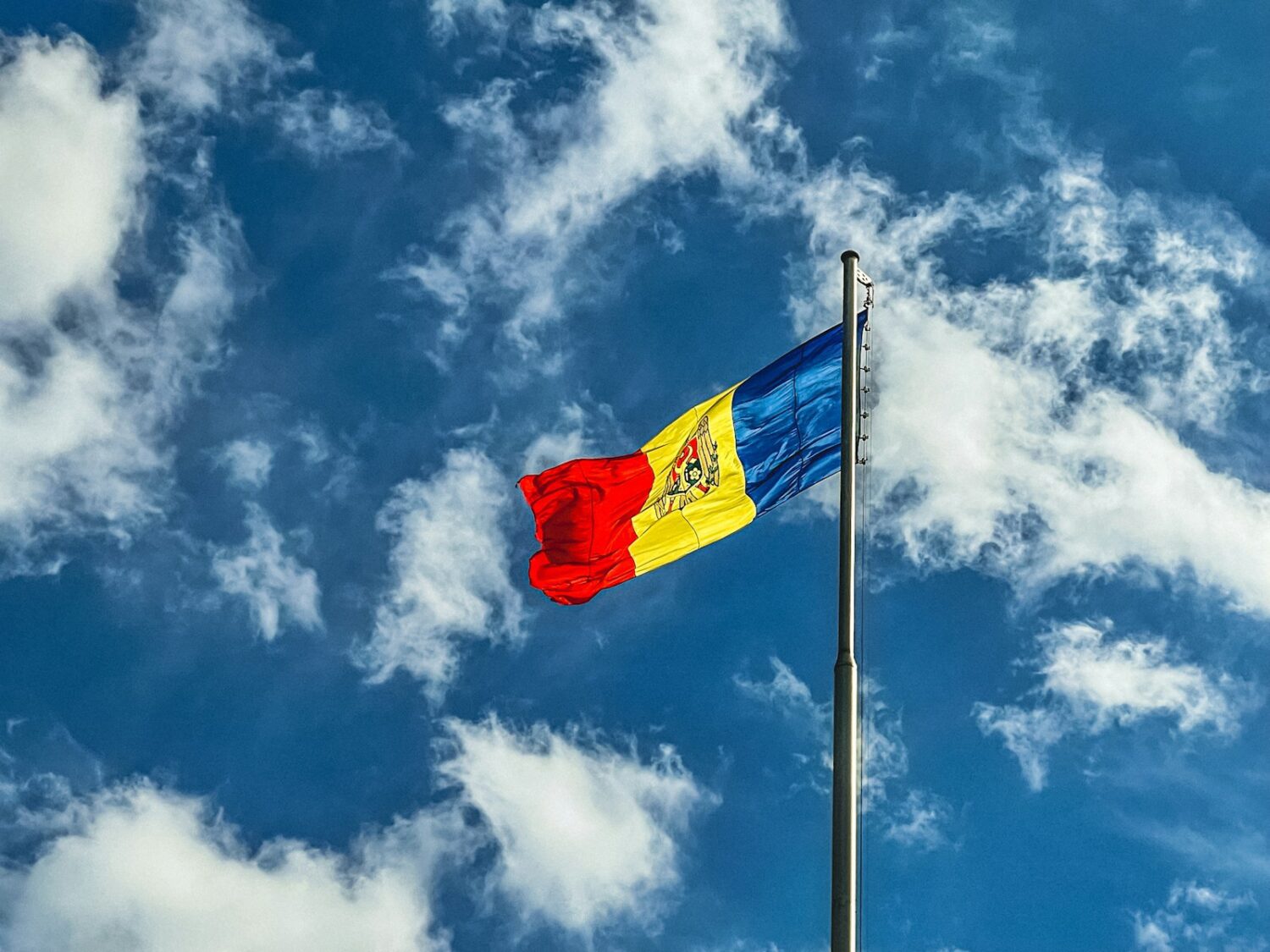
Moldova is at a crucial crossroads as polling stations opened today for a pivotal referendum. Voters across the nation are tasked with two significant decisions: determining their next president and deciding whether Moldova should embrace European Union (EU) membership.
Current polls indicate that approximately 60% of Moldovans support joining the EU; however, a turnout of at least 33% is required for the referendum to be deemed valid. The potential of a new future is palpable in many regions, yet skepticism persists.
In the capital city of Chișinău, citizens expressed mixed sentiments about EU membership. “Nothing good,” remarked one man, echoing the frustrations of those who have long lived with deteriorating infrastructure and stagnant development. “In all these years they’ve been doing nothing. The roads are completely deteriorated. I don’t see any hope for the future,” he added.
Conversely, many voters believe that EU membership could enhance living standards and wages, issues that have pushed many young Moldovans to seek better opportunities abroad. “I think these elections go hand in hand because I will, of course, choose the European path,” stated an optimistic voter, emphasizing the importance of unifying the nation’s vision for its future.
Polling stations opened at 7 a.m. local time and will close at 9 p.m., with the potential for a presidential runoff on November 3 if incumbent President Maia Sandu does not secure an outright majority. Sandu, a dedicated proponent of EU accession, faces competition from Alexandr Stoianoglo, a former prosecutor general with pro-Russian affiliations polling at around 10%.
Moldova’s minimum wage, currently set at 5,000 leu (approximately €261) per month, ranks among the lowest in Europe. A recent analysis by the independent think tank Idis Viitorul revealed that over 200,000 Moldovans have left the country in the last four years, marking a record high. Alarmingly, more than 40% of Moldovans living overseas fall within the 30 to 44 age demographic, indicating a potential demographic shift by 2030, when those born abroad could outnumber those born in Moldova.
“For about 20 years, we have been talking about Moldova in the European Union, and we are very close now. It is crucial to not miss this opportunity,” remarked President Maia Sandu, who has actively advocated for EU membership. The nation was granted EU candidate status in 2022, signaling a pivotal moment in its European aspirations.
However, the shadow of foreign influence looms large over the referendum. Moldovan authorities have highlighted attempts by Russian-backed campaigns to demobilize voters. Allegations revealed that approximately €14 million in Russian funds were funneled directly to about 130,000 Moldovans in efforts to sway votes against EU integration. Pro-Russian oligarch Ilan Shor, notorious for orchestrating Kremlin-backed operations within Moldova, has even been reported to offer financial incentives for anti-EU votes.
In response, Moldova’s Prime Minister Dorin Recean urged citizens to stay vigilant against external destabilization efforts. “It is up to you, dear citizens, to stop the attack on democracy,” he declared. “On Sunday, you make the choice: do we go back to the past, or do we march towards a future within the family of civilized countries?”
As the nation votes today, the Central Election Commission announced that ballots can be cast at 2,221 polling stations, including 1,957 across Moldova and 234 stations set up in various countries for Moldovans living abroad.
Africa
Shadows Over Democracy in Mozambique
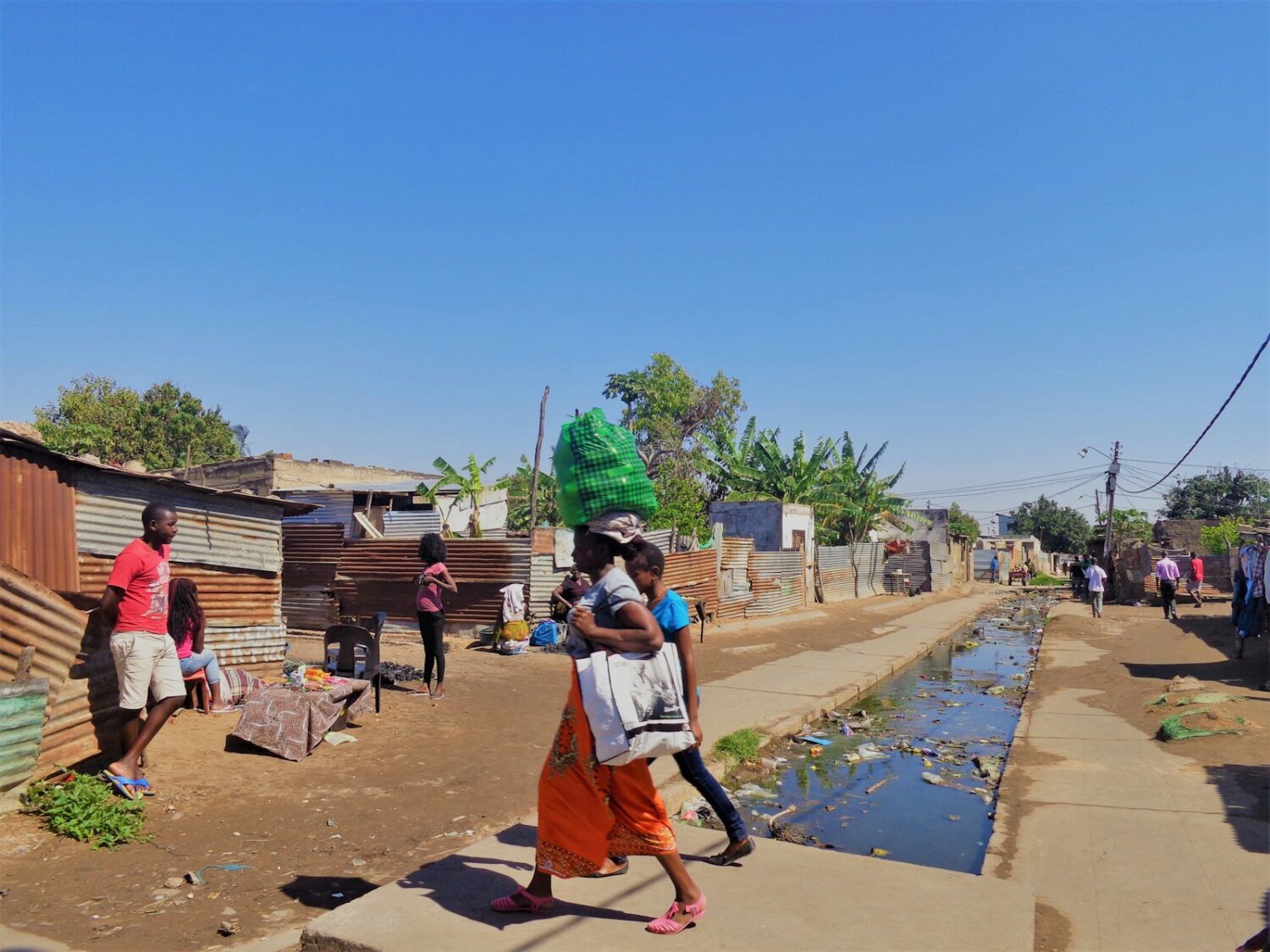
In a deeply concerning development in Mozambique’s political landscape, the European Union (EU) has condemned the recent killings of two prominent figures: Elvino Dias, a legal advisor to Presidential candidate Venâncio Mondlane, and opposition politician Paulo Guambe. The EU stated that these politically motivated murders have no place in a democracy and expressed its heartfelt condolences to the families and friends of the deceased.
The EU’s strong condemnation comes in the wake of alarming reports regarding the violent dispersal of political supporters following last week’s elections in Mozambique. The Union has called for an immediate, thorough, and transparent investigation into the killings, demanding justice for those responsible and clarity on the circumstances surrounding these outrageous crimes. The EU reiterated its hope for a timely response from the Mozambican Government, emphasizing that a quick and effective inquiry is essential to restore public confidence.
In addition to seeking accountability for the murders, the EU has urged all parties to exercise restraint during this turbulent post-electoral period. The organization underlined the importance of respecting fundamental freedoms and political rights, asserting that strong protective measures for all candidates are crucial to ensuring their safety and fostering a more stable political environment.
Meanwhile, the European Union Election Observation Mission remains actively engaged in Mozambique, closely assessing the ongoing electoral process. The EU expects the country’s Election Management Bodies to uphold integrity in their operations, ensuring that the electoral process is conducted with due diligence and transparency—reflecting the will of the Mozambican people.
As the nation grapples with the implications of these political killings, the international community watches closely, hoping for accountability, peace, and the preservation of democratic values in Mozambique.
Politics
Creative Europe to support around 40 projects to boost literary translation in 2025
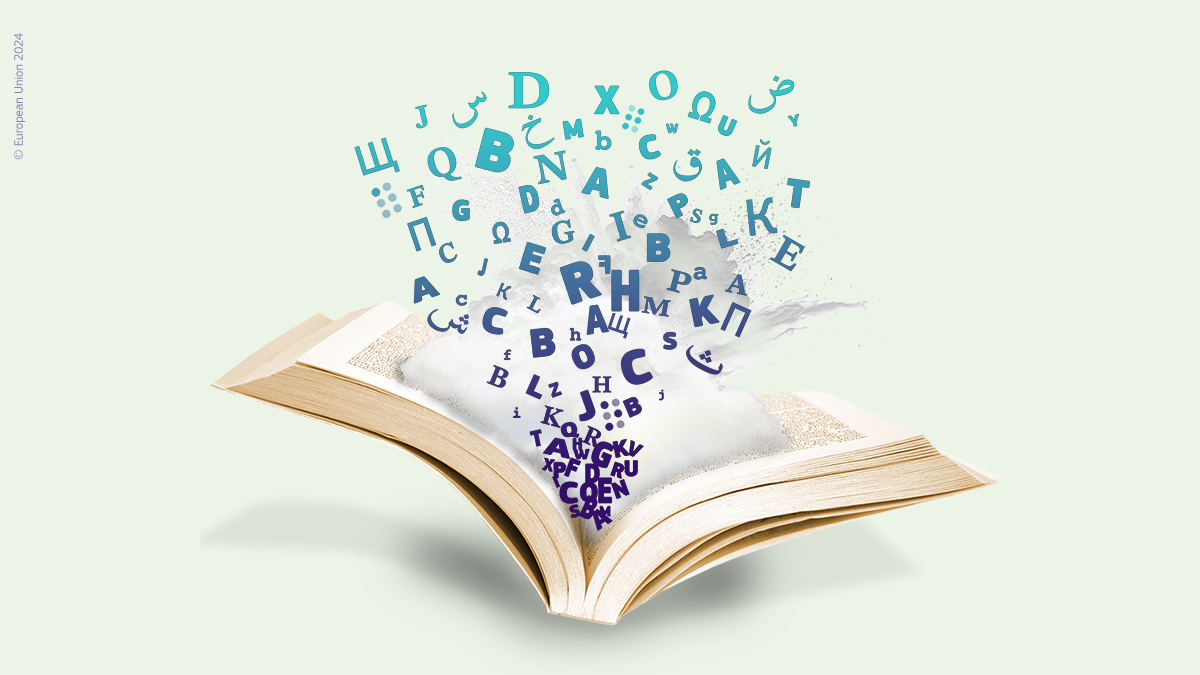


DISCLAIMER: Information and opinions reproduced in the articles are the ones of those stating them and it is their own responsibility. Publication in The European Times does not automatically means endorsement of the view, but the right to express it.
DISCLAIMER TRANSLATIONS: All articles in this site are published in English. The translated versions are done through an automated process known as neural translations. If in doubt, always refer to the original article. Thank you for understanding.

The call Circulation of European Literary Works supports the transnational circulation and the diversity of European literary works through the translation, publication, distribution, and promotion of European literary works of fiction .
With a budget of €5 million, about 40 projects will be selected for funding.
The deadline for applications is 11 February 2025.
Eligibility
Interested organisations can apply individually or as a consortium of at least 2 eligible organisations. Each project must have a sound editorial, distribution and promotion strategy and propose a minimum of 5 eligible works of fiction written by authors who are nationals of, or residents in, or recognised as part of the literary heritage of an eligible country.
Applicants can apply with projects of different sizes:
- Small scale: projects proposing at least 5 translations of eligible works
- Medium scale: projects proposing at least 11 translations of eligible works
- Large scale: projects proposing at least 21 translations of eligible work
Source link
More from the author
– EXCLUSIVE CONTENT –
-

 Sports6 days ago
Sports6 days agoItaly, Daniel Maldini doesn’t hide his excitement
-
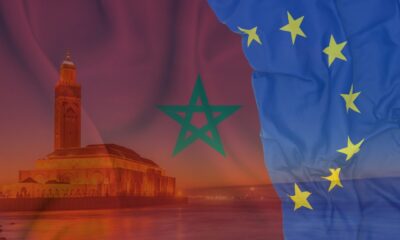
 Africa6 days ago
Africa6 days agoThe European Union and Morocco: Navigating Trade Relations and Geopolitical Issues
-

 Sports6 days ago
Sports6 days agoNations League: Italy poker, overcome Israel. Azzurri one step away from the quarters
-

 Sports5 days ago
Sports5 days agoPhysical problem in national team: Piotr Zielinski scares Inter Milan.
-
EU & the World6 days ago
Is the Stock Market Open Today? What to Know About the Markets
-

 Health & Society6 days ago
Health & Society6 days agoThe Resident, Netflix’s medical series that exposes medical corruption in the US
-

 EU & the World6 days ago
EU & the World6 days agoWhere to Watch the Dodgers vs. Mets Game: Where to Stream & Watch the NLCS Live
-
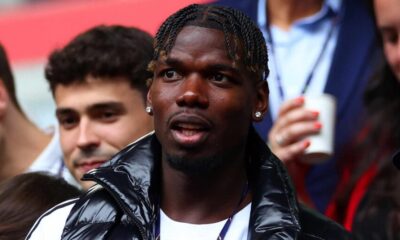
 Sports6 days ago
Sports6 days agoJuventus, Paul Pogba speaks out about his future








